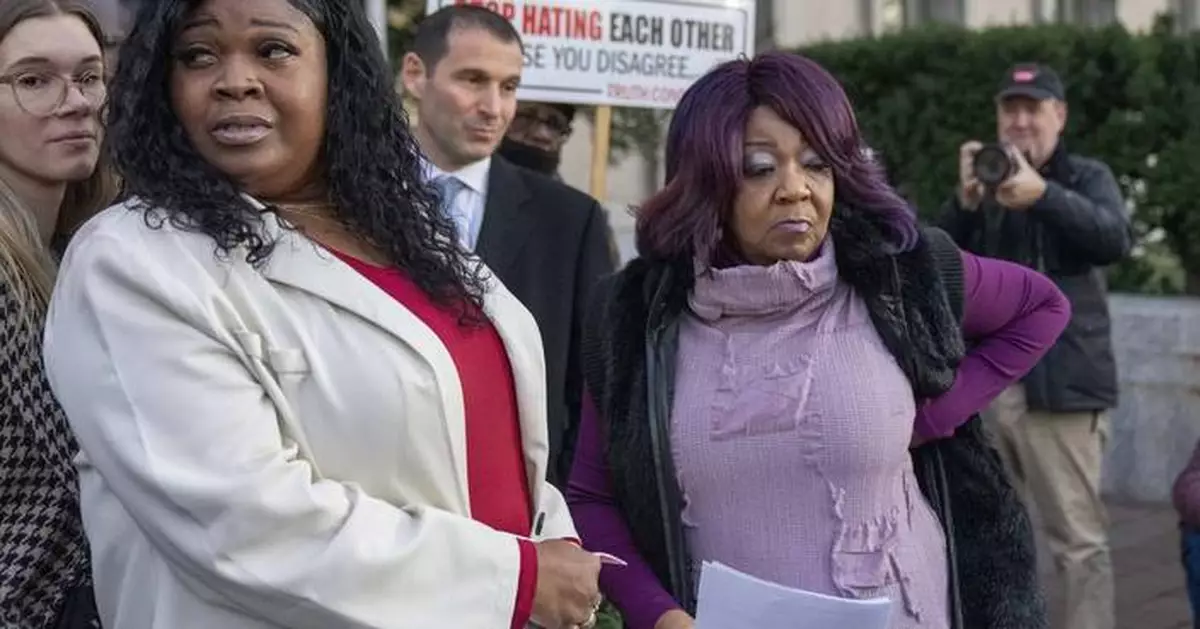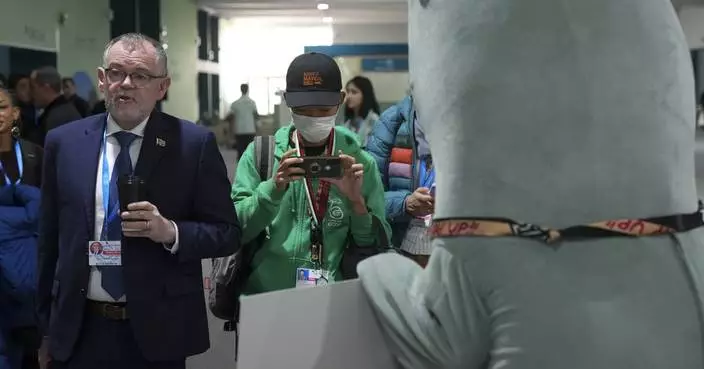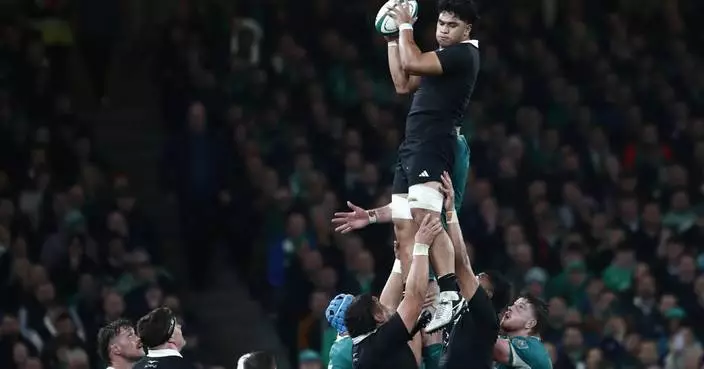Two former Georgia election workers who won a $148 million defamation judgment against Rudy Giuliani asked a judge Wednesday to penalize him even further for continuing to falsely accuse them of tampering with ballots during the 2020 presidential election.
Attorneys for Ruby Freeman and her daughter, Wandrea “Shaye” Moss, argued in a filing in a Washington, D.C. federal court that Giuliani has “brazenly” violated an agreement he signed to stop repeating the falsehoods, The alleged violations came in statements he made during two recent broadcasts of his nightly show on the social media platform X.
“These statements repeat the exact same lies for which Mr. Giuliani has already been held liable, and which he agreed to be bound by court order to stop repeating,” read the filing, which asked the judge to hold Giuliani in contempt and impose sanctions against him.
A lawyer for Giuliani, Joseph M. Cammarata, said he had not seen the court filing and could not respond to its specific claims, but accused the women's attorneys of trying to intimidate the former New York City mayor. In a statement, Giuliani's spokesperson, Ted Goodman, called the new legal filing an attempt to “deprive Mayor Rudy Giuliani of his First Amendment right to freedom of speech.”
Giuliani, a longtime Donald Trump ally, was found liable last year for defaming Freeman and Moss by accusing them of ballot tampering as he pushed then-President Trump’s lies about election fraud. The women said they faced death threats after Giuliani falsely claimed they sneaked in ballots in suitcases, counted ballots multiple times and tampered with voting machines.
The $148 million judgment led to a failed bankruptcy attempt by Giuliani. He has since been ordered to turn over many of his assets to Freeman and Moss, including his $5 million Upper East Side apartment.
In December, the women sued Giuliani again for continuing to repeat his ballot-tampering claims, resulting in the court issuing a permanent injunction in May that barred the former mayor from making any statements that suggest the women engaged in any wrongdoing in connection with the 2020 presidential election.
Lawyers for the two plaintiffs argued in Wednesday's court filing that Giuliani broke that agreement when he referred to the pair again on his recent video broadcasts on Nov. 12 and Nov. 14, including baselessly claiming that he was not allowed to show tapes of "quadruple counting" ballots during the trial.
In his statement responding to the filing, Goodman argued that Giuliani “has every right to defend himself.”
Giuliani has been critical of a judge’s ruling that ordered him to turn over many prized possessions to Freeman and Moss — including the apartment, a Mercedes once owned by movie star Lauren Bacall and dozens of luxury watches. He said he should not have had to surrender his possessions until his appeal is decided.
At a news conference in New York City on Wednesday, Cammarata said Giuliani has turned over “90 to 95%” of his possessions. Last week, Giuliani surrendered the Mercedes and watches. Cammarata said the 1980 Mercedes-Benz SL 500, Giuliani's only vehicle, was worth less than $5,500 and should be exempt from the judgment under law.
As for the New York apartment, Cammarata said it either has been turned over or is in the process of being turned over.
Giuliani has remained defiant amid the collection efforts, which have stretched past an Oct. 29 deadline.
“We will not relent,” Cammarata said.
Associated Press writer Jennifer Peltz in New York contributed to this report.
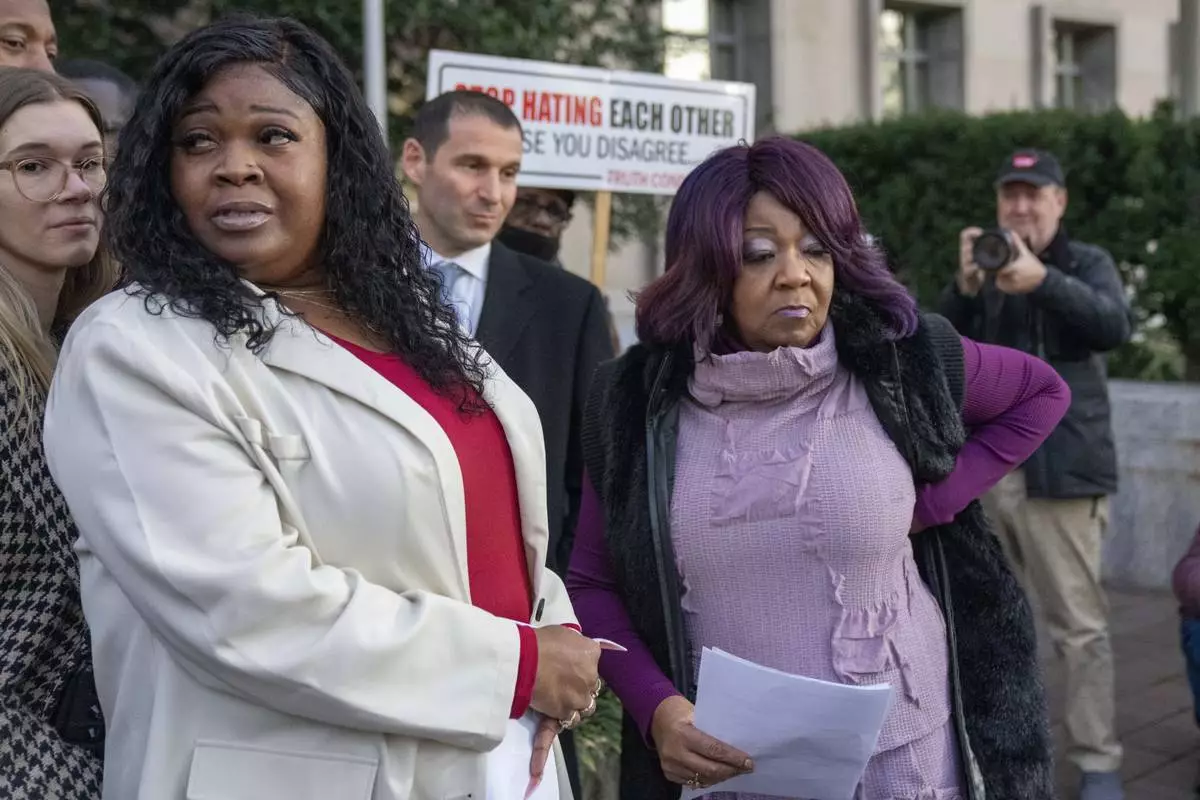
FILE - Wandrea "Shaye" Moss, left, and her mother Ruby Freeman, right, leave after speaking with reporters outside federal court, Dec. 15, 2023, in Washington. (AP Photo/Alex Brandon, File)
DALLAS (AP) — Delta and United have become the most profitable U.S. airlines by targeting premium customers while also winning back a significant share of travelers on a tight budget.
That is squeezing smaller low-fare carriers like Spirit Airlines, which filed for bankruptcy protection on Monday. Some travel-industry experts think Spirit’s troubles indicate that travelers on a budget will be left with fewer choices and higher prices.
Other discount airlines are on much better financial footing than Spirit, but they too are lagging far behind the full-service airlines when it comes to recovering from the COVID-19 pandemic. Most industry experts think Frontier Airlines and other so-called ultra-low-cost carriers will fill the vacuum if Spirit shrinks, and that there is still plenty of competition to prevent prices from spiking.
Spirit Airlines has lost more than $2.2 billion since the start of 2020. Frontier has not reported a full-year profit since 2019, although that slump might end this year. And Allegiant Air’s parent company is still profitable, but less so than before the pandemic.
Those kind of numbers — and of course, some promotion of his own airline — led United Airlines CEO Scott Kirby to declare recently that low-cost carriers were using “a fundamentally flawed business model” and customers hate flying on them.
Kirby’s touchdown dance might turn out to be premature, but many analysts are wary about the near-term prospects for budget airlines, which charge cheaper fares but more fees than the big airlines.
Low-cost airlines grew in the last two decades by undercutting big carriers on ticket prices, thanks in large part to lower costs, including hiring younger workers who were paid less than their counterparts at Delta Air Lines, United and American Airlines. Wages have soared across the industry in the last two years, however, narrowing that cost advantage.
At the same time, the big airlines rolled out and refined their no-frills, “basic economy” tickets to compete directly with Spirit, Frontier and other budget carriers for the most price-sensitive travelers.
The budget airlines have also become less efficient at using planes and people. As their growth slowed, they wound up with more of both than they needed. In 2019, Spirit planes were in the air an average of 12.3 hours every day. By this summer, the planes spent an average of two more hours each day sitting on the ground, where they don't make money.
Spirit's costs per mile jumped 32% between 2019 and 2023.
Another issue is that airlines added too many flights. Budget airlines and Southwest Airlines were among the worst offenders, but full-service airlines piled on. To make up for a drop in business travel, the big carriers added more flights on domestic leisure routes. The result: Too many seats on flights into popular tourist destinations such as Florida and Las Vegas, which drove down prices, especially for economy-class tickets.
Tom Fitzgerald, an airline analyst at TD Cowen, said that after doing a good job tweaking their basic-economy offerings, the bigger airlines now are enjoying a boom on the premium travel side.
“Post-COVID, people have seemingly been willing to pay a lot more to have a better experience" with flights and lodging, he said, “and the legacy carriers are a lot better positioned to cater to that demand. They have premium economy, they have first-class.”
Low-cost airlines are responding by following the old adage that if you can't beat them, join them. That means going premium, following the rapidly growing household wealth among upper-income people.
Frontier Airlines organized its fares into four bundles in May, with buyers of higher-priced tickets getting extras such as priority boarding, more legroom, and checked bags. The airline dropped ticket-change or cancellation fees except for the cheapest bundle.
Spirit followed in August with similar changes, blocking middle seats and charging passengers more for the comfort of aisle and window seats.
JetBlue Airways, which began flying more than 20 years ago as a low-cost carrier but with amenities, is digging out from years of steady losses. Under new CEO Joanna Geraghty, the first woman to lead a major U.S. airline, JetBlue is cutting unprofitable routes, bolstering core markets that include the Northeast and Florida, and delaying deliveries of $3 billion worth of new planes.
Perhaps the biggest change is coming at Southwest Airlines. Starting next year, Southwest will toss out a half-century tradition of “open seating” — passengers picking their own seat after boarding the plane. Executives say extensive surveying showed that 80% of customers preferred an assigned seat, and that's especially true with coveted business travelers.
Coming out of the pandemic, “there is a clear preference for more premium," Southwest CEO Robert Jordan said. "Premium is kind of self-defined — whether that is extra legroom, first-class to Europe, whatever it is — but there is a rise in the desire for premium, something a little better.”
Jordan said it's not clear why demand for premium products and experiences have grown so rapidly, but figures on wealth offer one explanation.
The top one-fifth of U.S. households by income have added $35 trillion in wealth since 2019 and holds nearly nine times the wealth of the middle fifth, according to the Federal Reserve. That gives the wealthiest households plenty of money to spend on premium travel.
More crowded planes might also be pushing passengers to spend more to escape a middle seat in the back of the plane.
Whatever the reasons, Delta executives say they expect sales of premium tickets will surpass the airline's revenue from main-cabin tickets by 2027.
In other parts of the world, budget carriers are doing just fine. They have bounced back from the pandemic just like their more highbrow competitors.
Some industry experts say low-cost carriers in Asia and Europe have always attracted a more diverse mix of passengers, while in the United States, affluent and middle-class travelers look down their noses at low-cost carriers.
Jamie Baker, an analyst for JPMorgan, says he has many college friends who work in London and fly Irish airline Ryanair all the time, but he hardly knows anyone who has ever been on a Spirit or Frontier plane.
“There is no stigma for anybody to fly Ryanair or easyJet in Europe. Meanwhile — not to pick on Spirit or kick them when they are down — but it’s sort of the airline booty call,” Baker recently told an audience of pilots for other airlines, who roared in laughter.
Delta CEO Ed Bastian is less dismissive of the “lower-end carriers” in the U.S. than United's Kirby.
"I don’t see that segment ever disappearing,” Bastian said this week, after Spirit’s bankruptcy filing. “I think there’s a market for it.”
At the same time, he said the upscale moves by ultra-low-cost carriers are having no effect on his airline. Delta targets upscale travelers but also introduced basic-economy fares a decade ago, when discounters emerged as a growing threat to poach some of Delta's customers.
“Just calling yourself a premium carrier and actually being a premium carrier are two totally different things,” Bastian said “It's not the size of the seat or how much room you have; it's the overall experience.”
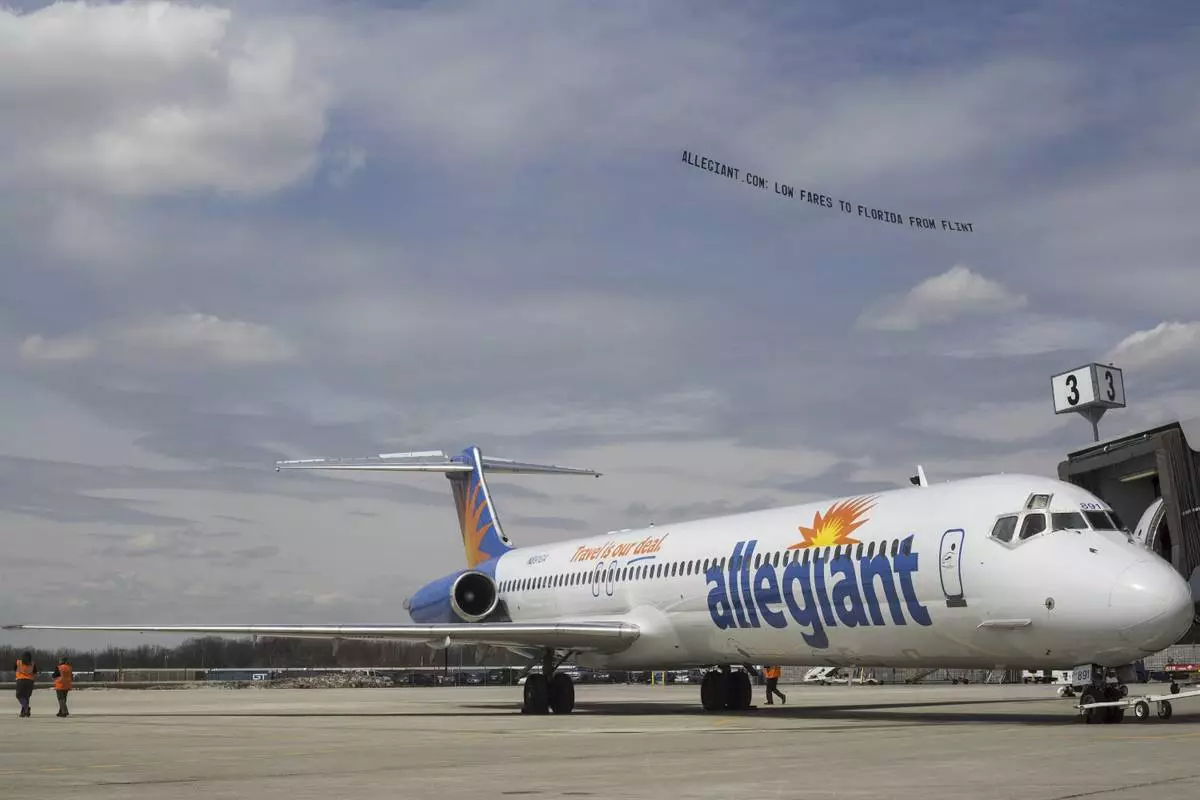
FILE - A small plane tows a banner over Flint Bishop Airport as part of ceremonies marking Allegiant Air joining Flint Bishop International Airport on April 13, 2016. (Conor Ralph/The Flint Journal- MLive.com via AP, File)
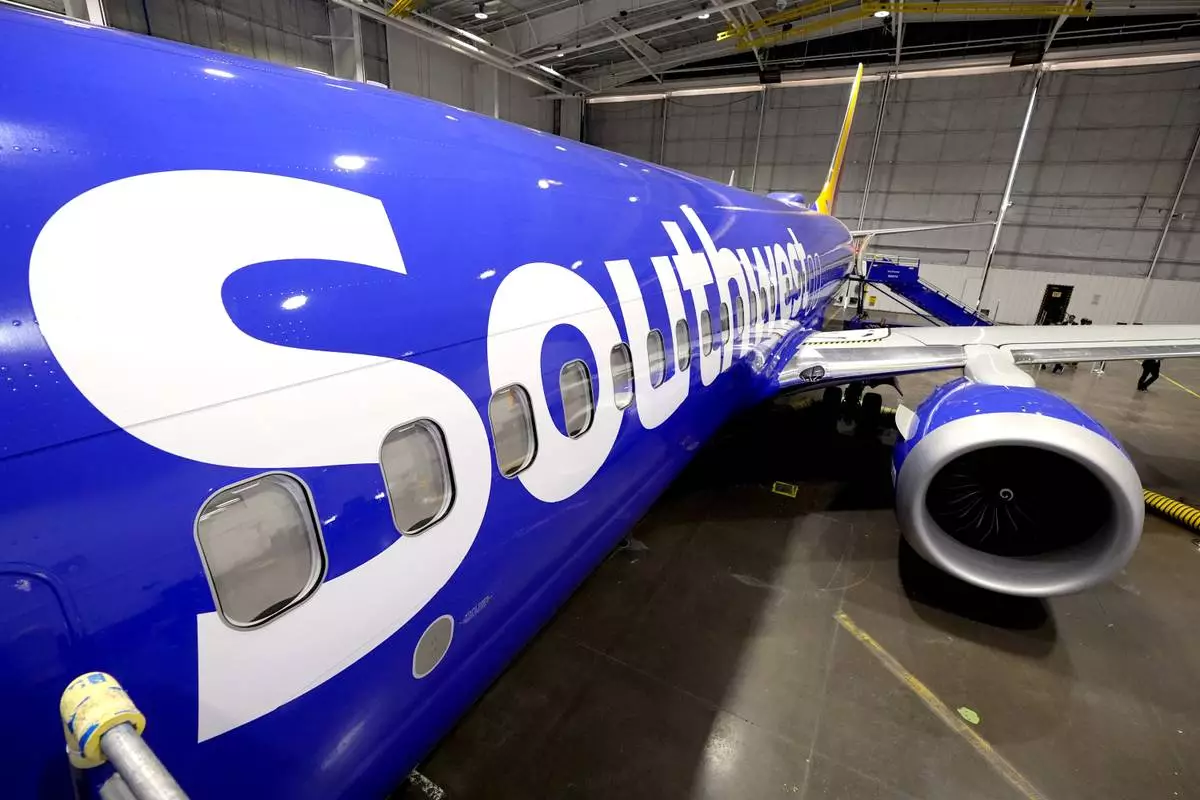
FILE - A retrofitted Southwest Airlines passenger jet is shown in a hangar at Love Field on Sept. 26, 2024, in Dallas. (AP Photo/Tony Gutierrez, File)
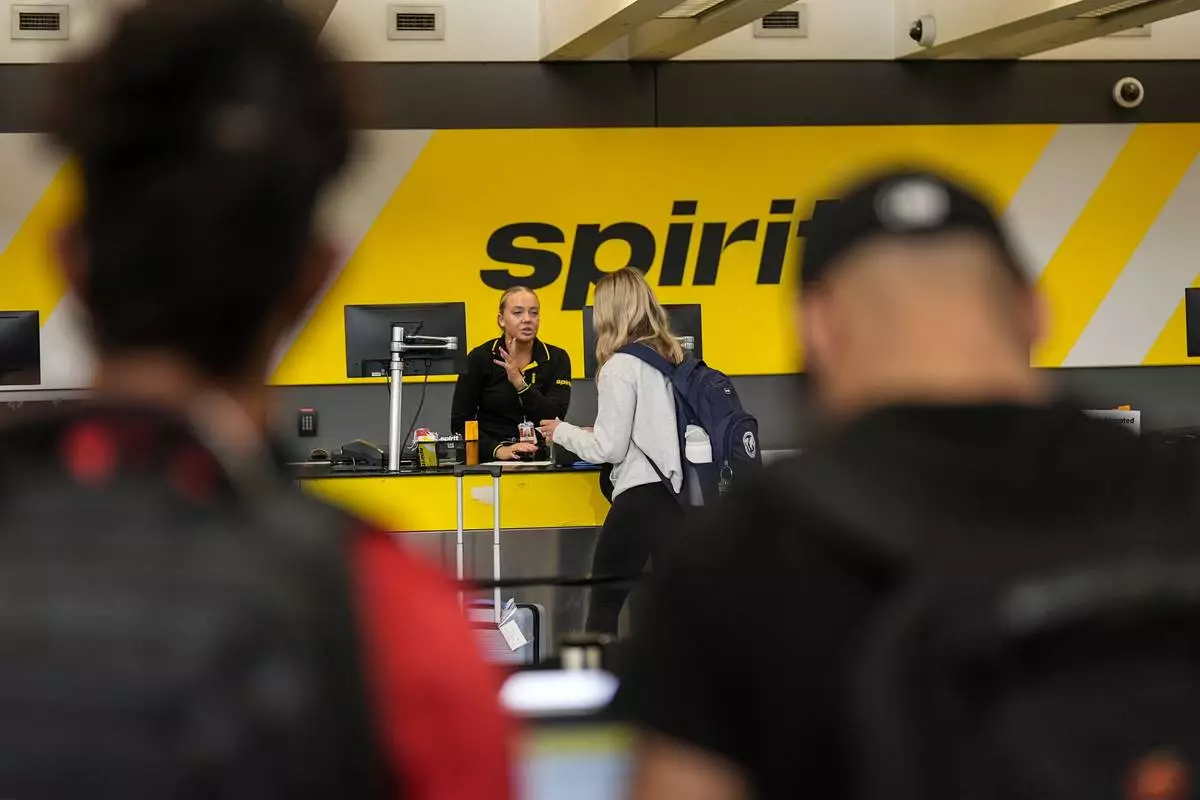
FILE - A traveler speaks with a Spirit Airlines agent at Hartsfield-Jackson Atlanta International Airport ahead of Memorial Day, on May 24, 2024, in Atlanta. (AP Photo/Mike Stewart, File)
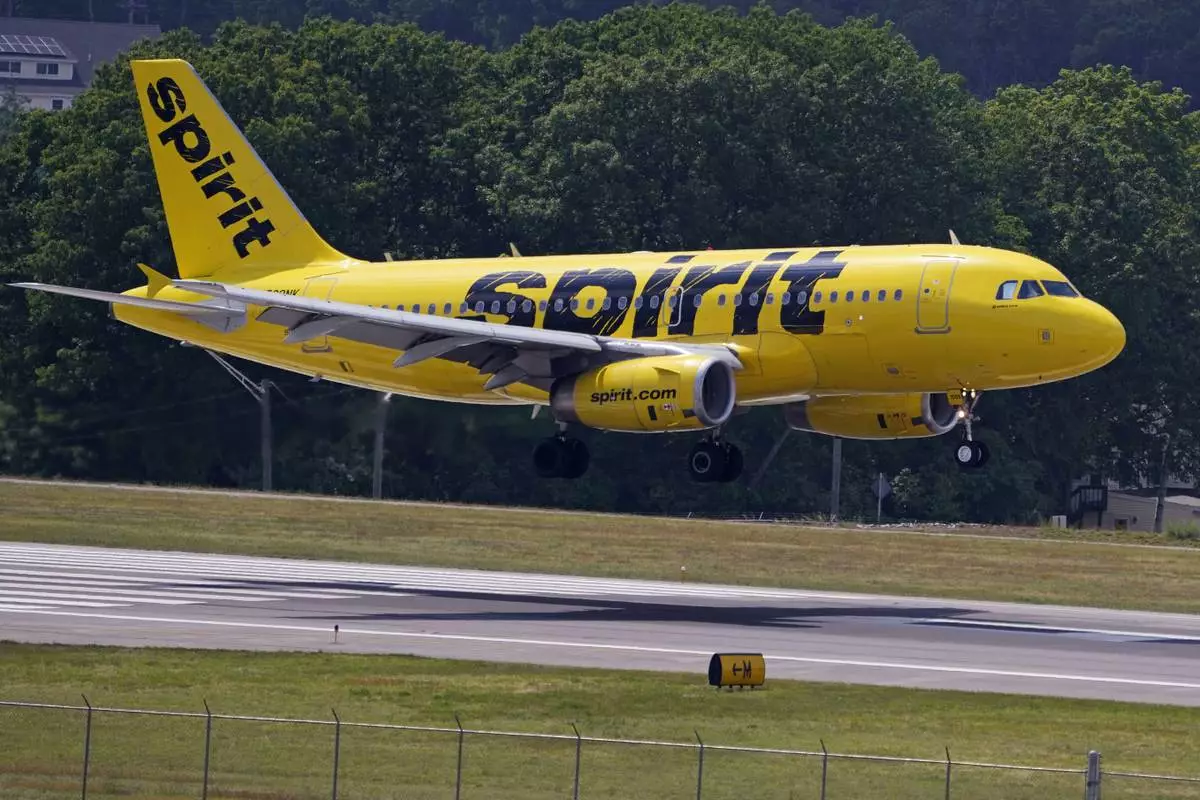
FILE - A Spirit Airlines 319 Airbus lands at Manchester Boston Regional Airport on June 2, 2023, in Manchester, N.H. (AP Photo/Charles Krupa, File)
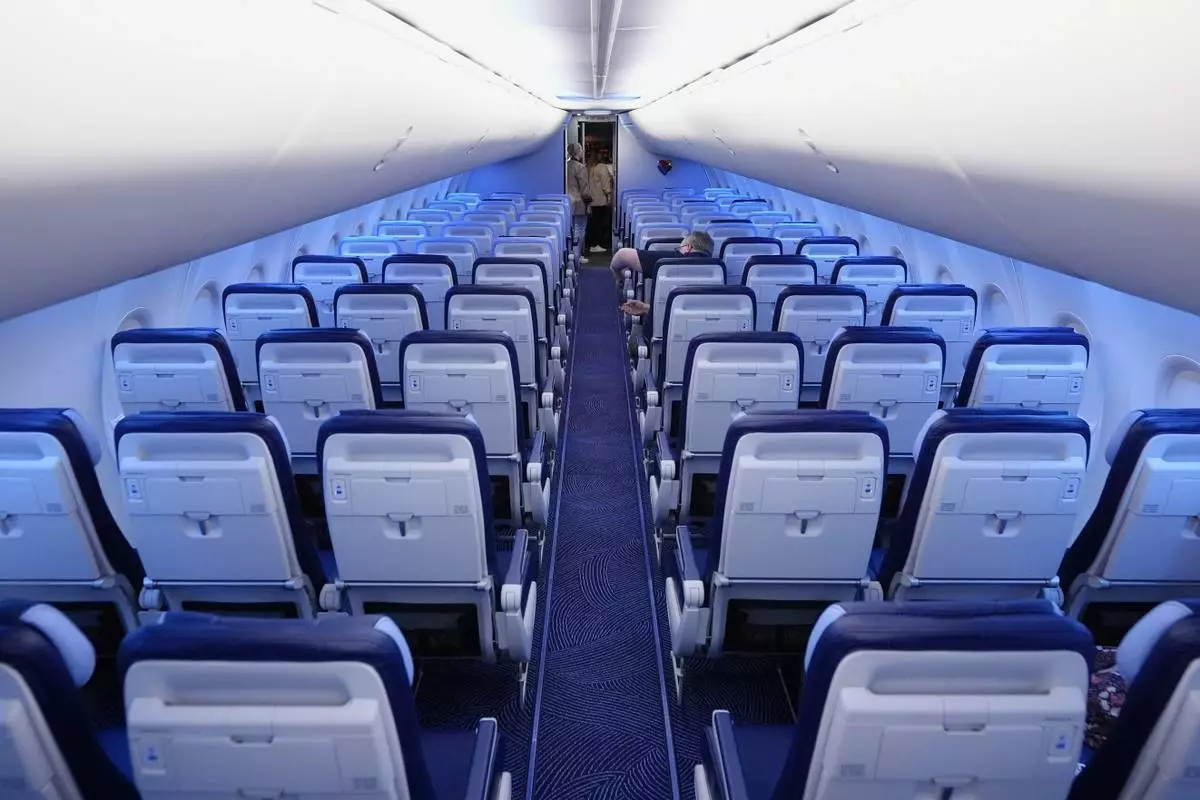
FILE - Rows of seats are shown on a retrofitted Southwest Airlines jet at Love Field, Sept. 26, 2024, in Dallas. (AP Photo/Tony Gutierrez, File)
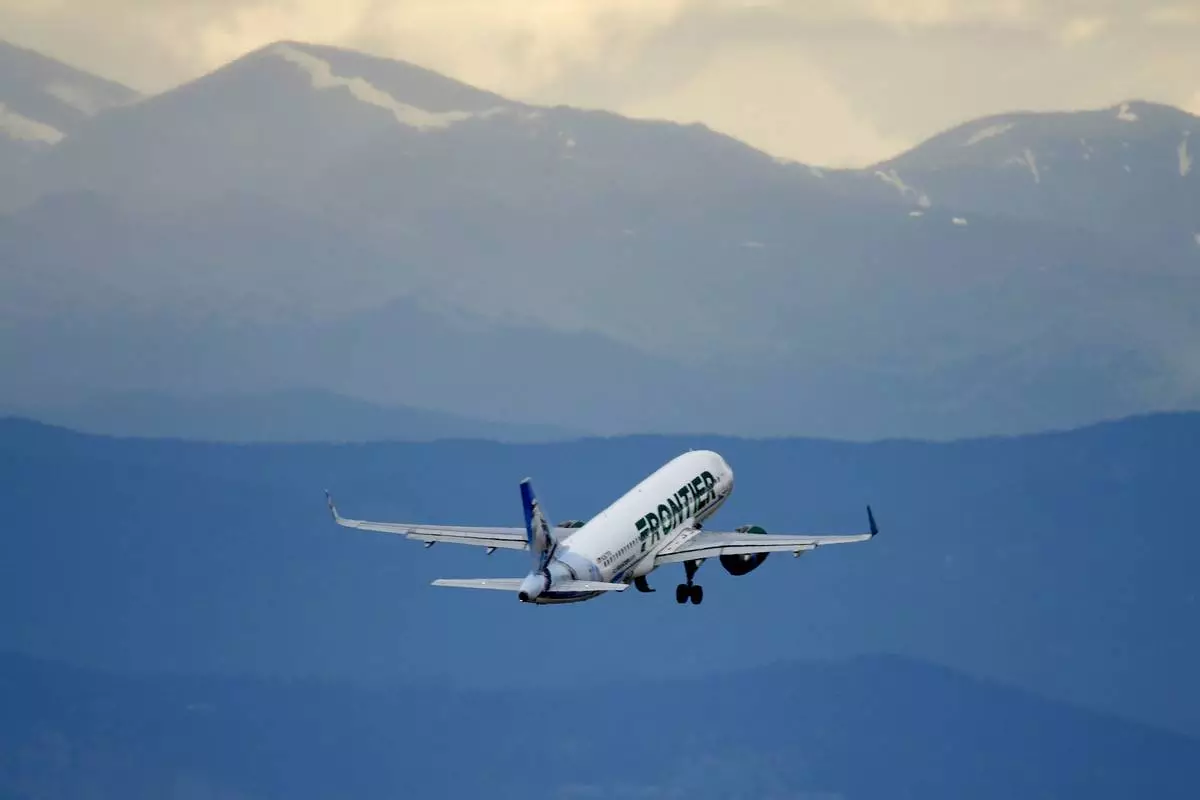
FILE - A Frontier Airlines jet takes off from Denver International Airport on July 5, 2022, in Denver. (AP Photo/David Zalubowski, File)



